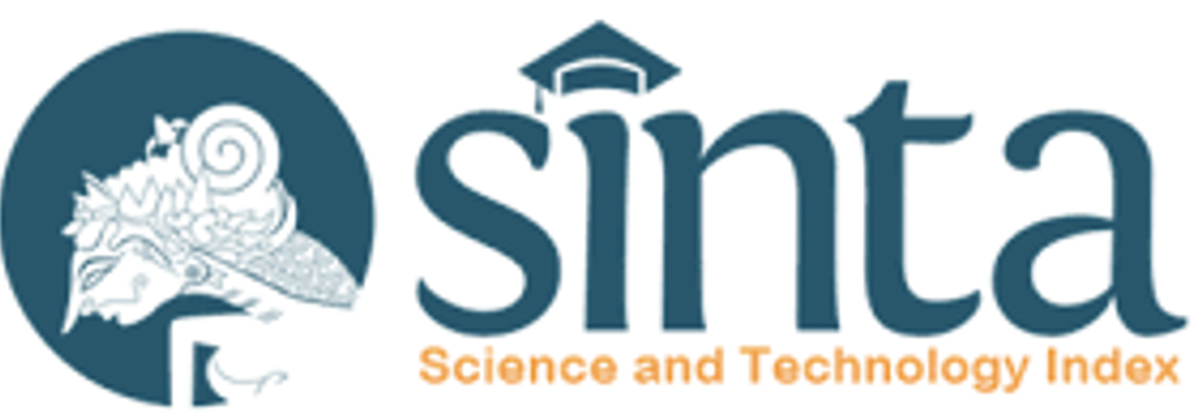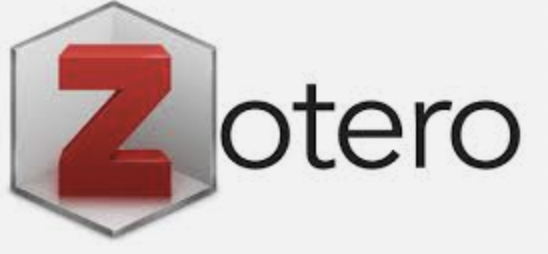Kaji Banding Kesadaran Metakognitif Antara Para Siswa dan Siswi Kelas Tinggi SD Di Bumi Raya Morowali
DOI:
https://doi.org/10.21067/jppi.v17i1.7819Keywords:
Student’s metacognitive awareness, GenderAbstract
Student competency development will be good, one of them is if student have metacognitive awareness. This reseach aims to determine: 1) student’s meta-cognitive awareness between high classes (4th, 5th, 6th) of elementary school in Bumi Raya Morowali; 2) metacognitive awareness between male and female students in high class of elementary school; 3) metacognitive awareness of male and female students between high classes in elementary school. This research is a comparative survey research. The instrument of the research is used MAI-Sraw and Denisson (1994) that modified suit for elemantary school students’s literacy skill. The respondents who have been involved are 134 students, respondents were selected using probability sampling technique. Also use inferencial parametric statistic (two way anova). This research results that: 1) Student’s metacognitive awareness of 4th grade is different, possessed lowest level than 5th grade and 6th grade. Student’s metacognitive awareness of 5th grade and 6th grade is not different each other. First concluded analysis that student’s metacognitive awareness between high classes of elementary school in Bumi Raya Morowali is different. 2) The metacognitive awareness between male and female students overall is not different. 3) Interaction between level of grade and gender on student’s metacognitive awareness are: the metacognitive awareness between male and female students of 4th grade also male students of 5th grade is not different; the metacognitive awareness between male and female students of 4th grade is different from male students of 6th grade, female students of 6th grade and female students of 5th grade; than the metacognitive awareness of male and female students of 5th grade with the metacognitive awareness of male and female students of 6th grade is not different. The recommendations for the next research are to apply longitudinal research and to add the the variabel’s research in order to get gradual describtion of student’s metacognitive awareness.
References
Abdelrahman, R.M. 2020. Metacognitive Awareness and Academic Motivation and Their Impact on Academic Achievement of Ajman University Students. 6(9).
Abu, H.N., Rahaman, N.A., & Gustina. 2015. Pengaruh Strategi Pembelajaran terhadap Kesadaran Metakognitif dan Hasil Belajar Siswa Kelas XI IPA SMAN 13 Makassar pada Materi Sistem Koloid, Jurnal Chemica, 16(1), 37-46.
Akhtar, H. 2017. Cara Mengatasi Data Berdistribusi Tidak Normal. https://www.semestapsikometrika.com/2017/12/mengatasi-data-tidak-normal
Akin, E. 2016. Examining the Relation Between Metacognitive Understanding of What is Listened to and Metacognitive Awareness Levels of Secondary School Students. 11(7), 390-401,
Akman, O., & Alagoz. 2018. Relation Between Metacognitive Awareness and Participation to Class Discussion of University Students. Universal Journal of Educational Research, 6(1), 11-24.
Ardianingsih, W., & Salim, R.M.A. 2019. Perbedaan Gender pada Kesadaran Metakognitif dalam Strategi Membaca Bacaan Akademik. Jurnal Psikologi Teori dan Terapan, 10(1), 74-84.
Ardiansyah, dkk. 2021. The Correlation Between Metacognitive Skills and Scientific Attitudes to Wards the Retention of Male and Female Students in South Sulawesi, Indonesia. International Journal of Evaluation and Research in Education, 10(4), 1272~1281.
Asy’ari, M., dkk. 2022. Student’s Metacognitive Awareness in Natural Science Learning: An Overview by Gender. Jurnal Penelitian Pendidikan IPA, 8(1), 67-72.
Azizi, M.R. 2021. The Study of Metaconitive Awareness Academic Achievenent anda Gender Differences. (Tesis). Universitas Muhammadiyah, Yogyakarta.
Bakkaloglu, S. 2019. Analysis of Metacognitive Awareness of Primary and Secondary School Students in Terms of Some Variables. Journal of Education and Learning; 9(1).
Bujuri, D.A. 2018. Analisis Perkembangan Anak Usia Dasar dan Implikasinya Dalam Kegiatan Belajar Mengajar. http://ejournal.almaata.acid/index.php/literasi
Deliany, Z., & Cahyo B.Y. 2020. Metacognitive Reading Strategies Awareness and Metacognitive Reading Strategies Use of EFL University Students Across Gender. Jurnal Unsyiah, 7(2), 2461-0275
Fauzi, C., & Ashadi. 2021. An Analysis on Reading Strategies Based on Metacognitive Awareness and Gender, Lingua Pedagogia Journal, 1(1).
Fauzi, W. 2018. Students Metacognitive Skills from The Viewpoint of Answering Biological Questions: Is It Ready Good. Indonesian Journal of Science Education, 8(3).
Fitria, L., Jamaluddin, & Artayasa, I.P. (2020). Analisis Hubungan antara Kesadaran Metakognitif dengan Hasil Belajar Matematika dan IPA Siswa SMA di Kota Mataram. Jurnal Kependidikan, 6 (1), 147-155.
Garzon, F.M., Bustos, A.P.H., & Lizarazo, J.O.U. 2020. Relationship Between Metacognitive Skills, Gender and Level of High School Students. Psicology Journal, 27(1), 9-17.
Hasbi, A.R.R. (2020). Hubungan Kesadaran Metakognisi Dengan Hasil Belajar. (Skripsi), Universitas Muhammadiyah, Makasar.
Hastati, S., & Nurdiasyah, E. 2019. Peningkatan Kesadaran Metakognitif dan Hasil Belajar Melalui Penerapan Model Discovery Learning Pada Pembelajaran IPS. Jurnal Ilmu Pendidikan Dasar, 2(2), 2620-5246.
Hermawan, W., Abidin, Z. & Junaedi, E. 2018. Peran Gender dan Kesadaran Metakognitif Siswa SMA di Kabupaten Kuningan Terhadap Hasil Belajar Biologi. Jurnal Pendidikan Biologi. 10 (2), 2651-5869.
Hurst, M. 2021. Gender Differences in The Classroom: Physical, Cognitive and Behavior. study.com/academy/lesson/gender-differences-in-the-classroom-physical-cognitive-behavioral.html
Jausevec, N., & Pahor, A. 2017. Increasing Inteligence. Wosinton, DC: Elsevier Academic Press.
Kocaeli, B.B.A., Yorulmaz, A., & Cokcaliska, H. 2020. Investigation of Primary School Student’s Metacognitive Awareness and Decision-Making Skill. International Journal of Progressive Education, 16(4), 9118-4815.
Misu, L., & Masi, L. 2017. Comparison of Metacognition Awareness of Male and Female Students Based on Mathematics Ability in Department of Mathematics Education of Halu Oleo University. International Journal of Education and Research, 5(6), 2411-5681.
Panda, S. 2017. Interdiciplinary Studies Metacognitive Awareness of College Students: Prespectives of Age and Gender. Scholary Research Journal, 4(37), 2278-8808.
Putri, N.K.N., Danial, M. dan Arsyad, N. 2018. Pengaruh Sikap, Konsep Diri, Dan Kesadaran Metakognitif Terhadap Hasil Belajar Kimia Peserta Didik Kelas XI MIA SMAN Di Kecamatan Ujung Bulu Kabupaten Bulukumba, Jurnal Chemistry Education Review (CER), 1 (2), 73-89.
Rinaldi. (2017). Kesadaran Metakognitif. Jurnal RAP UNP, 8(1), 79-87.
Sari, A.P., Karyanto, P., & Ashadi, A. 2020. Metacognitive Awareness of Commuter and Resident Students of High School in Biology Learning. Jurnal Pendidikan Biologi Indonesia, 6(1), 25-30.
Rukmaningrum, D.V., Hanurawan, F., & Mudiono, A. (2017). Pengetahuan Metakognitif Belajar Siswa Kelas V SD. Jurnal Pendidikan, 2(2), 280-284.
Sihaloho, L., Rahayu, A., & Wibowo, L.A. 2018. Pengaruh Metakognitif Terhadap Hassil Belajar Pada Mata Pelajaran Ekonomi Melalui Efikasi Diri Siswa. Jurnal Ekonomi Pendidikan dan Kewirausahaan, 6 (2), 121-136.
Siswati, B.H., & Corebima, A.D. 2017. The Effect of Educational Level and Gender on Students Metacognitive Skills in Malang Indonesia. Social Science Research Journal, 4(4), 163-168.
Sri, H., & Erwin, N. 2019. Peningkatan Kesadaran Metakognitif dan Hasil Belajar Melalui Penerapan Model Discovery Learning Pada Pembelajaran IPS. Jurnal Ilmu Pendidikan Dasar, 2(2), 2620-5246.
Sugiyono. (2018). Metode Penelitian Kuantitatif. Bandung: Alfabeta.
Veloo, A., Rani, M.A., & Hariharan, K. 2015. The Role of Gender in the Use of Metacognitive
Awareness Reading Strategies among Biology Students. Asian Social Science Journal, 11(1), 1911-2025.












